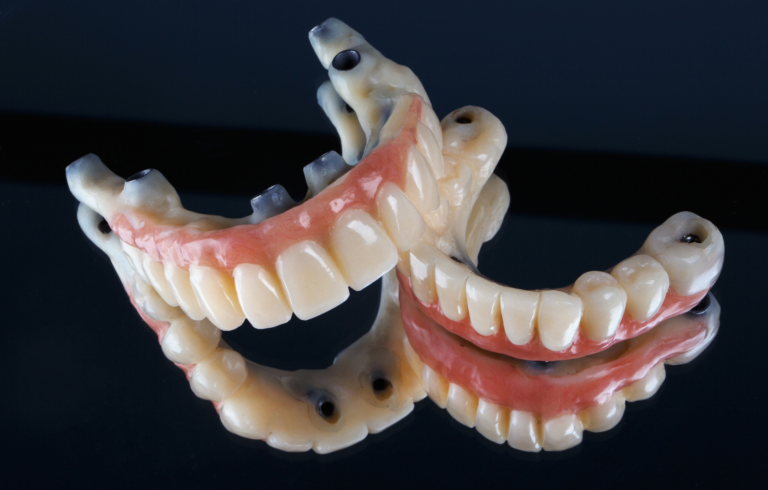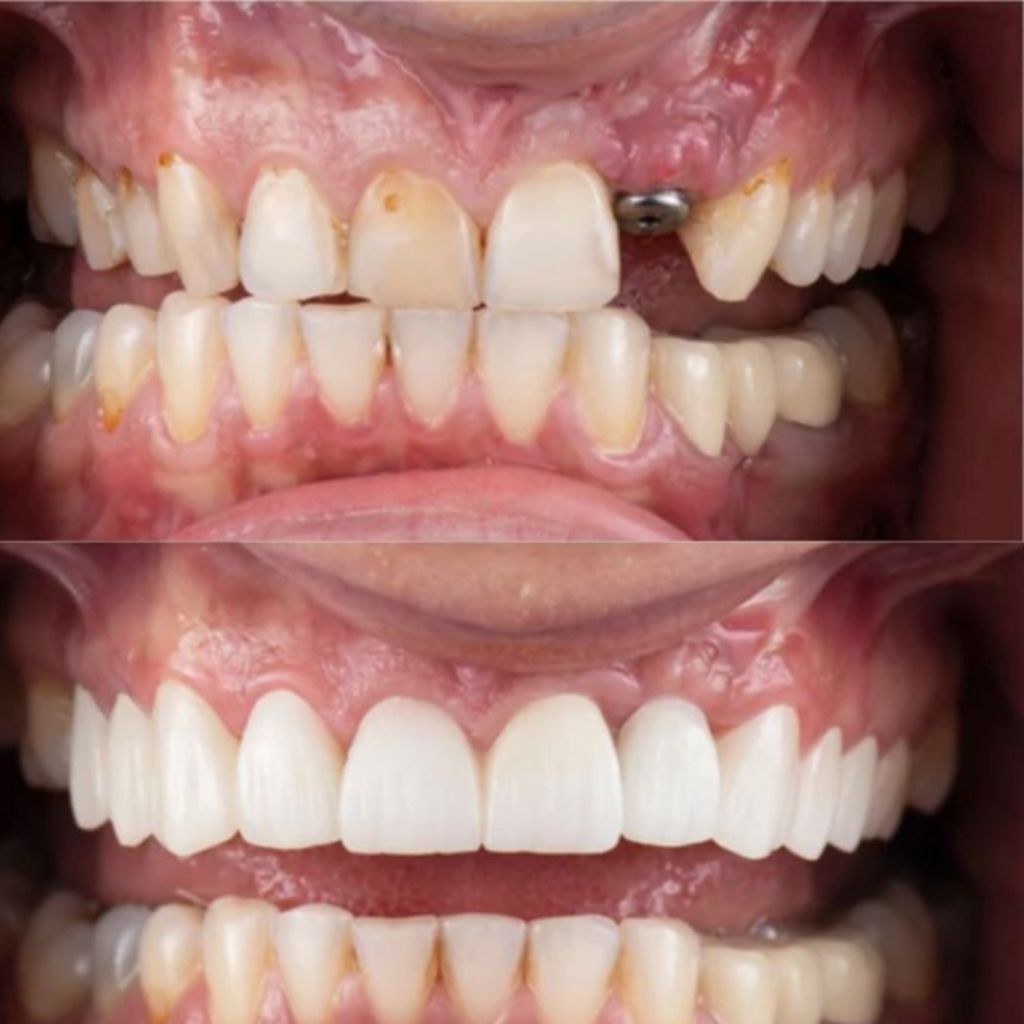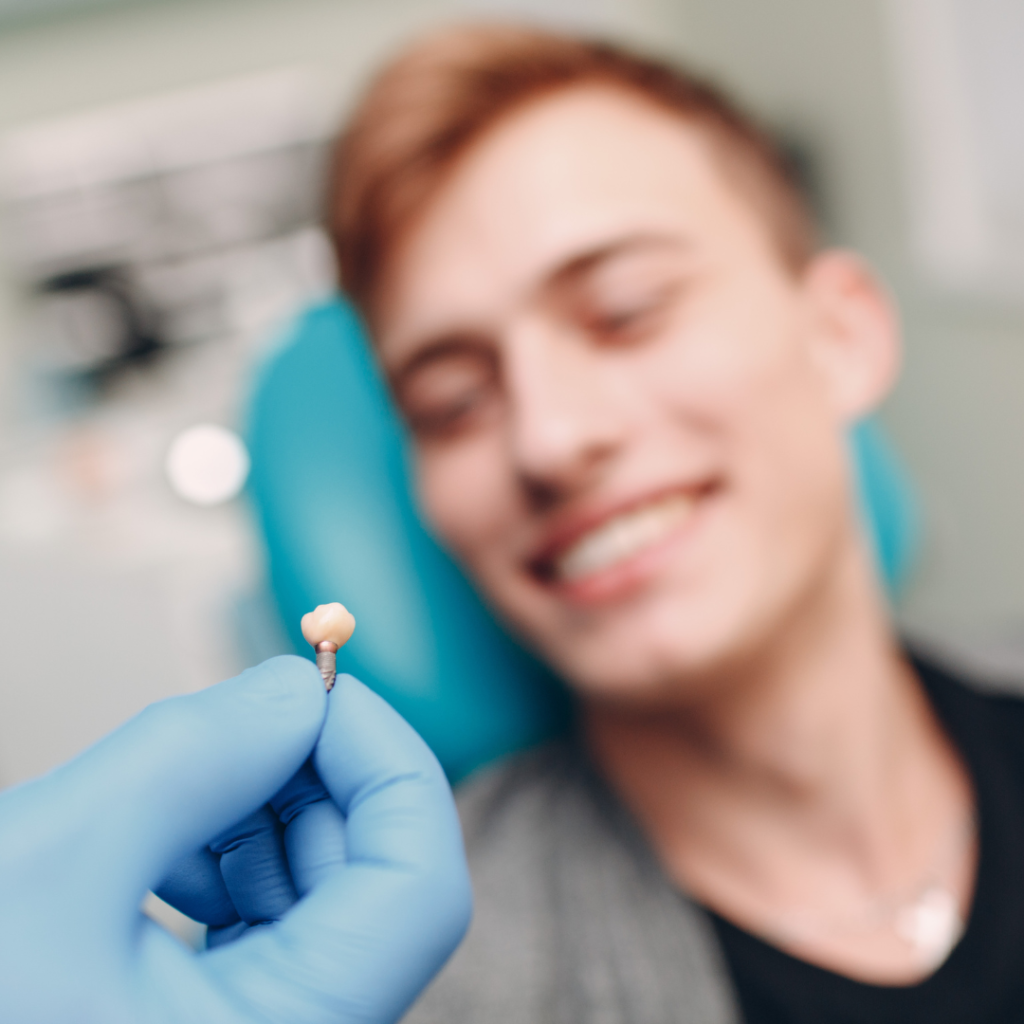
Undergoing dental implant surgery may be a huge stride in smile and oral function restoration, it’s very important to be prepared for recovery in order to have successful dental implants. In fact, post-operative care is the most critical time required for the healing of your mouth and integration of the implants with the jawbone. Here’s what to expect during your recovery and essential aftercare tips for dental implants.
First 24 Hours: Immediate Aftercare
The first day after your dental implant surgery is important because it is during this period that you are most prone to infection. Your oral surgeon may have a few specific instructions, but here are some general aftercare tips for dental implants to follow:
• Caring for Your Mouth: You can expect soreness and tenderness of the teeth, gums, and jaw. You should keep your fingers and tongue away from the surgical site as much as you can. Apply cold compresses or ice packs to reduce swelling. Take pain medications as directed. Keep your mouth clean but do not use peroxide or mouthwash during your healing. Instead, gently rinse with a warm saltwater solution. You should start to feel better after the first couple of days.
Note: If you have a fever higher than 101.5°F following your surgery, contact your surgeon immediately, as this could be a sign of infection.
• Eating and Drinking: An hour after your procedure you can remove the gauze sponges and begin eating some soft foods. For the first 24 hours, you should avoid drinking from a straw or eating/drinking hot liquids. Keep your diet limited to cool, soft foods such as smoothies, mashed potatoes, and yogurt. When eating, make sure to chew on the side that is furthest away from the surgical site. Avoid eating hard or chewy foods to avoid irritating your implant.
• Pain medications: You may feel nauseated or dizzy from some of the prescribed drugs. They are usually some over-the-counter painkillers and anti-inflammatory drugs. However, they can have severe interactions with other drugs that you may be administered. Make sure that you inform your surgeon about other drugs you are taking for proper adjustments to be made.
• Rest and Recovery: You will be quite groggy from the anesthetic effects after this operation. Avoid driving or operating any heavy machinery at least for 24 to 48 hours until the anesthetic is completely cleansed from your system. Make sure that someone may accompany you home after surgery.
• 48 to 72 Hours: On-Going Aftercare: You can start taking firmer foods by the second day; however, if you experience pain, then continue taking soft foods till you heal completely. During this phase, it is usual to have swelling, minor bleeding, and pain. Keep the application of hot and cold compresses going on and also maintain oral health by gently brushing your teeth.
• Three Days After Surgery: Back to Normal: Most patients are able to resume work three days after surgery but some might require more time to recover from the procedure. Avoid smoking because it can cause an implant to fail and lead to infection. Do not smoke for at least one week during your recovery phase.
How To Care For Your Dental Implants: Long-Term
Dental implants work just like natural teeth, so you are supposed to brush and floss them regularly. While dental implants won’t develop cavities, they are still prone to wear. Aftercare for dental implants includes regular dental checkups. The dentist should, after a while, check on the health of your implants and the gum surrounding them. Gum problems may weaken the supporting jawbone of the implant; therefore, good oral health is paramount.
Conclusion: The Healing Process
Recovery from dental implant surgery is going to require that you follow all instructions provided by your surgeon. Keep in mind that everybody heals at a different pace, so if you seem to be taking a bit longer, don’t get discouraged. Following proper dental implant aftercare practices will ensure that soon enough you’ll be able to enjoy the benefits of a fully restored smile free from the burdens of dentures or missing teeth.
If you are a dentist in search of premium dental implants at affordable prices, then Uptown Dental Lab has great options for you. With a commitment to precision and reliability, we deliver dental implants that go way above your expectations, our high-quality products are available at a generous cost making it easier for anyone to get back their smile.



